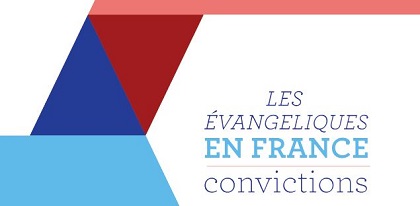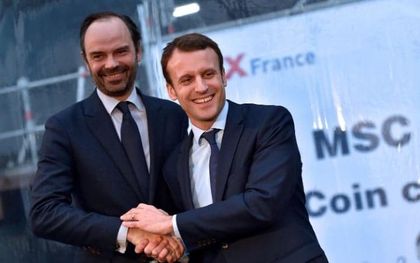What does Macron believe about laicité?
“Religious expression must not be repressed in the private sphere”, the new President of France said. Édouard Philippe is named Prime Minister.
Evangelical Focus, RCF Radio, BBC · PARIS · 16 MAY 2017 · 10:20 CET
Emmanuel Macron is now officially France's new President. The topic of laicity was discussed in the first televised debate with all the candidates in the French presidential election.
Marine Le Pen wanted to use it as an instrument to fight against the communitarianism. The now French President, Macron, on the contrary, said that secularism protects freedom.
“LAICITY GUARANTEES FREEDOM”
Emmanuel Macron defends that secularism mainly guarantees the freedom to believe or not to believe and and equal treatment for all religions.
The founder of 'En marche' does not envisage limiting the wearing of religious signs throughout the public space, or even at the university or at the workplace.
"Religious expression must not be repressed in the private sphere" he said, because "it is the Republic that is secular and not society.”
“TRAINING IN SECULARISM”
Macron pointed out that religions have their role to play, and they take part in public debates without encroaching on political power.
He hopes to train the religious leaders in the values of the Republic and to reinforce the learning of the religious fact in the schools, “to strictly apply the principle of secularism."
Macron political program also proposes "to train all state workers on secularism”, so that "public services are truly neutral", because today "confusion reigns over the sense of secularism and its limits."
EVANGELICALS IN FRANCE: CONVICTIONS
Ahead of the elections, French evangelicals released a the 19-page manifesto (download here, in French) called “Evangelicals in France: Convictions”, which gives Christian perspectives on 7 critical issues in society, including the separation between church and state.

“Far from opposing religions, laicity is a constitutional principle which protects the freedom of thought, of conscience, and or religion of individuals and groups, as well as their freedom of speech”, the document says.
ÉDOUARD PHILIPPE, NEW PRIME MINISTER
Meanwhile, Emmanuel Macron has appointed the centre-right mayor of Le Havre, Édouard Philippe, as Prime Minister.

Edouard Philippe, 46, a lawmaker is member of the moderate wing of the main centre-right The Republicans party. His first task will be to lead the fierce battle in the June parliamentary elections to win a majority for Macron’s fledgling political movement, La République En Marche (La REM).
The announcement forms part of a busy first day for the President, who also have a meeting with Chancellor Angela Merkel in Berlin.
“EUROPE NEEDS FRANCE”
Emmanuel Macron was sworn in as French President at the Elysee Palace in Paris on Sunday.
He said he hoped to restore French values and applauded voters for resisting the wave of populism in choosing him over his rival, far-right candidate Marine Le Pen.
"The world and Europe needs France more than ever. They need a strong France that is sure of its destiny. A France that upholds freedom and solidarity," he said.
Published in: Evangelical Focus - europe - What does Macron believe about laicité?
